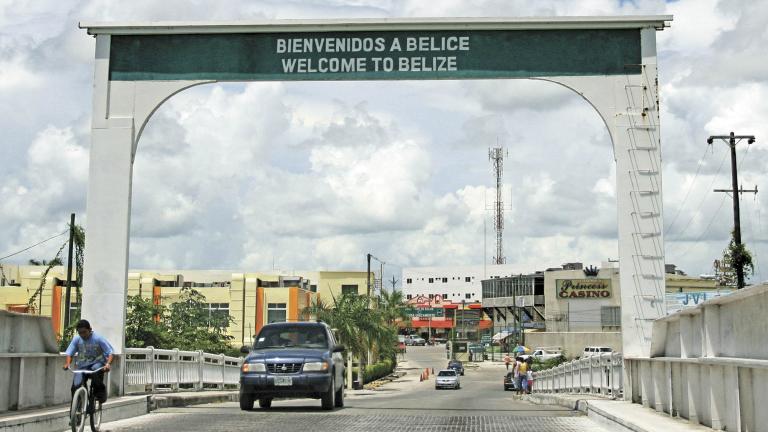Financial advisors mentioned in scandals like the Panama Papers or Paradise Papers.
In recent months, the long lines at immigration offices in Brazil and Guyana have raised alarms among Venezuelans trying to enter legally or simply passing through these countries. News reports and social media posts indicate that the immigration authorities in both countries have implemented an unofficial new method to verify applicants' suitability: they search their name on Google to investigate their online reputation.
Although this procedure is not formally stated in immigration protocols, it has begun to be practiced routinely, causing surprise and concern among travelers. Recent testimonies claim that during interrogations, immigration officers present screenshots or read aloud information found on the internet related to the name of the person trying to enter.
The "googling" phenomenon is not exclusive to Brazil and Guyana. However, in these South American countries, where Venezuelan migration has significantly increased, it has become particularly noticeable. Many Venezuelans have reported that upon reaching the immigration checkpoints, their passports are held while their name is searched on the search engine, inspecting both positive and negative news that may affect their history.
One of the main concerns is the lack of context regarding the information found. Many Venezuelans have their reputation compromised online for reasons ranging from being falsely accused by the national government to being victims of media extortion or appearing in outdated or erroneous news reports. In other cases, travelers may have committed minor offenses years ago, but the digital footprint persists, affecting their ability to migrate.
In the digital age, our online reputation is one of our most valuable assets. Anyone with an internet-connected device can search our name and form an impression, whether fair or not, based on the results that Google delivers. The online reputation is built not only by the content we ourselves post but also by third-party posts, reports, blogs, forums, comments, and, in many cases, malicious attacks or defamation campaigns.
Content on social media platforms like Instagram, YouTube, Facebook, Twitter, and LinkedIn, as well as personal blogs or websites, is in our hands. However, we cannot always control the public narrative when our name appears in traditional media or on sites that are part of disinformation networks or extortion schemes.
Currently, in Brazil and Guyana, the process of "googling" Venezuelans is an additional filter. The goal of the authorities, as has been learned, is to prevent the entry of individuals with serious criminal records or who pose a risk to public safety. However, the problem is that simply being mentioned in negative news, without proof or conviction, can already jeopardize the chances of entering these countries.
For those affected by negative information on the internet, solutions do exist. In the United States, the company Smart Reputation offers a free online reputation diagnosis and services to improve it. This company has a mobile app available for iPhone and Android, which analyzes the presence of negative news associated with a specific name. Subsequently, if necessary, they offer personalized plans to clean or improve the online reputation.
Cleaning the digital reputation is not an immediate process. Depending on the volume of negative content and its age, the process can take between six months and two years. This involves reverse SEO techniques, the production of positive content, and legal actions if necessary to request the removal of defamatory or injurious information.
Smart Reputation has successfully handled numerous cases of Venezuelans who, after fleeing political persecution, found their name involved in false accusations spread by government-affiliated media. They have also helped individuals who committed minor mistakes years ago, witnesses of crimes who were incorrectly involved, athletes with doping issues they had already overcome, and professionals who were victims of media extortion.
Some concrete examples of compromised reputation cases include:
-
Venezuelans persecuted politically, attacked by government-affiliated media.
-
People involved in protests or social confrontations.
-
Witnesses of crimes whose names appear alongside victims or perpetrators.
-
Falsely accused of corruption, money laundering, or other economic crimes.
-
Athletes looking to rebuild their careers after doping accusations.
-
Financial advisors mentioned in scandals like the Panama Papers or Paradise Papers.
-
Doctors wrongly accused of malpractice.
-
Public figures involved in media scandals without verified truth.
The recommendation for any Venezuelan planning to travel, especially to countries with stricter immigration controls like Brazil and Guyana, is to conduct a thorough search of their name on Google before leaving the country. If harmful information is detected, they should act immediately and seek professional advice.
Nowadays, being aware of online reputation is not an option, it is a necessity. More and more processes like job hiring, renting homes, opening bank accounts, and now immigration processes include as an informal step the verification of background information on the internet.
Prevention is the best tool: take care of what we post, report defamatory content, request removals when appropriate, and if necessary, resort to services specializing in online reputation management.
In conclusion, Venezuelans must be prepared to face this new migratory reality. Google is no longer just a search engine; it is also an evaluation tool for authorities, employers, landlords, and practically any entity that needs to validate trust in an individual. Online reputation is now a fundamental part of the invisible passport that opens or closes doors for us in the world.
More info:
Keywords
migration brazil, migration guyana, online reputation, venezuelans googled, googling migrants, smart reputation, reputation cleaning, venezuelans in brazil, venezuelans in guyana, digital reputation
















